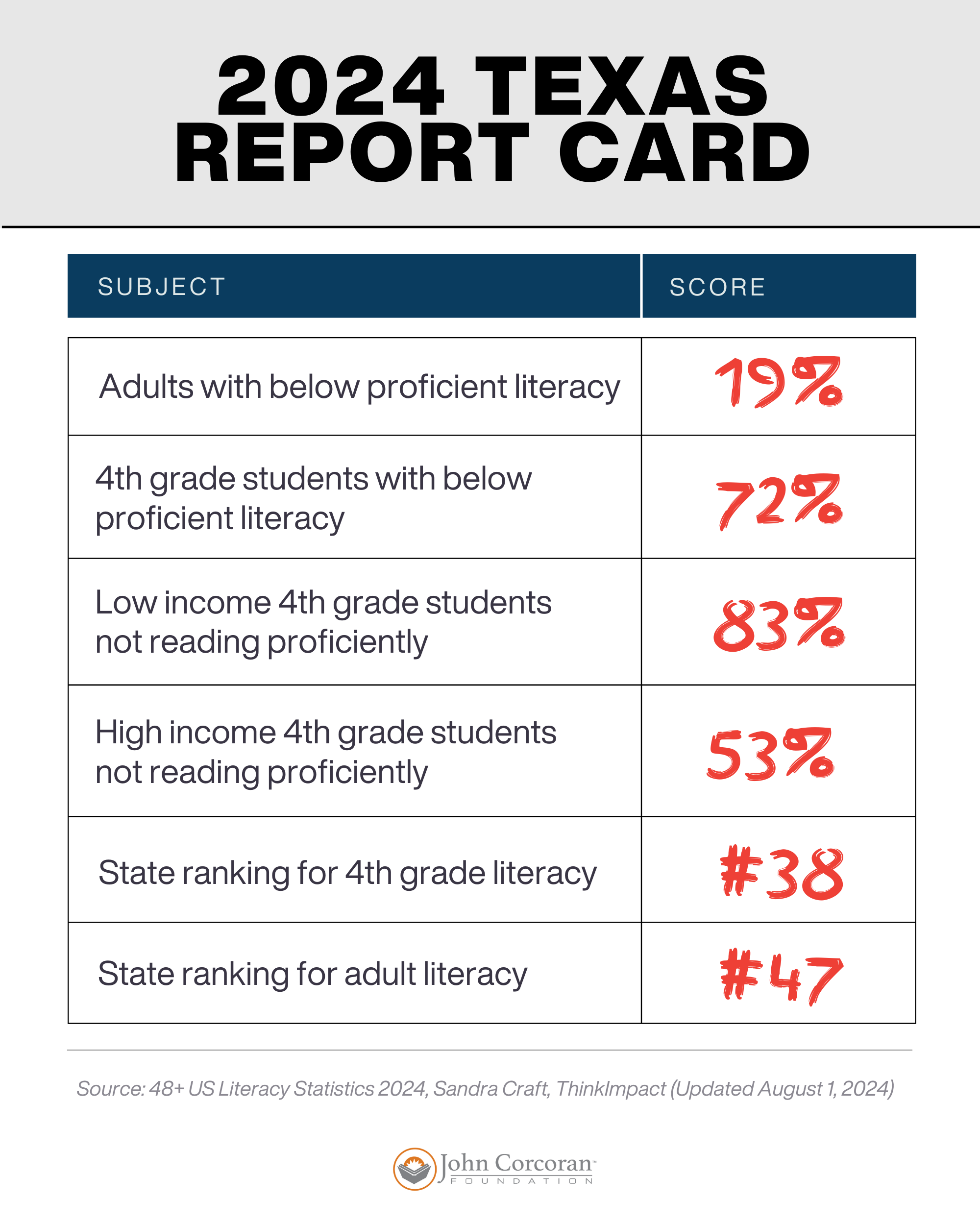Teaching Reading with Love: How Parents Can Nurture a Lifelong Love of Reading in Their Children
November 2024
By Alexandra Sanchez ’17

Imagine a world where the simple act of reading is a gateway to endless possibilities. For many, this remains a distant dream. John Corcoran ’61, a Texas Western graduate, lived this reality—he couldn’t read until he was 48. His struggle with illiteracy left him feeling frustrated, isolated, and deeply ashamed, describing it as having a “big hole in my soul.” Despite being surrounded by intelligent and supportive individuals, he lacked the essential tools and guidance to conquer reading.
Today, John is a fervent literacy advocate through the John Corcoran Foundation. He passionately believes that “teaching a child to read is an act of love.” His journey highlights the pivotal role parents play in their child’s literacy development.
A Growing Literacy Crisis
Corcoran’s story is one that resonates deeply with many. With the right support, reading can become a transformative force in a child’s life, opening doors to a brighter future.
In Texas, the statistics are stark: over 60% of children are not reading at grade level, and 19% of adults face challenges with basic literacy.

Listening to Corcoran, it becomes evident that literacy is not just an academic skill; it is a gateway to a richer, more connected life. In his writings, he emphasizes that many students need the right tools to “learn to decode and encode the written language, skills that the human brain is not naturally wired to do.” He firmly believes that parents are pivotal in this journey. Here are some invaluable insights and tips Corcoran shared on how parents can nurture a love of reading in their children.
- Make Reading an Enjoyable Family Experience. Children learn from the adults around them, and when parents make reading a fun and shared activity, it creates positive associations with books. Corcoran’s journey taught him the importance of reading aloud, storytelling, and making reading interactive. Set aside time for family reading nights where you take turns reading aloud, discussing the stories, or even acting out characters. When children see reading as a source of joy, they are more likely to engage with it on their own.
- Surround Your Child with Books. A home filled with books and other reading materials encourages children to explore reading naturally. Libraries, book exchanges, and even online resources can help you build a collection. For Corcoran, access to books was important in sparking curiosity, even before he could read them. When kids have access to books that interest them, they are more likely to pick one up and discover what they like to read.
- Dedicate a Daily Reading Time. Establishing a daily reading routine reinforces the importance of reading. Consistent, dedicated time, even 10-15 minutes a day, can help children develop the habit of reading. Parents can use this time to read with their child or let them enjoy a book independently.
- Model a Love for Reading. Children often learn and imitate the adults around them, so when they see parents reading, they are more likely to pick up the habit themselves. Corcoran believes that by demonstrating your own love for reading—whether it’s novels, newspapers, or even recipes—you encourage your child to see reading as an enjoyable, lifelong habit.
- Focus on Growth, Not Perfection . For struggling readers, the experience of learning to read can be challenging. Corcoran remembers how tough it was without the right support. By focusing on small victories and encouraging effort rather than perfection, parents can build their children’s confidence. Praising progress can help children develop confidence and a willingness to keep trying.
Overcoming the Challenge Together Corcoran’s journey is a powerful reminder that literacy is a deeply personal experience that impacts self-esteem and emotional well-being. He believes that the key to fostering literacy lies in “proper instruction” and support. While teachers and schools play essential roles, he emphasizes that parents can be the first and most influential reading mentors. Learning to read can open a world of opportunities. For Corcoran, it meant breaking free from years of shame. By supporting your child’s reading journey, you’re not just helping them succeed academically—you’re helping them discover new worlds, build self-confidence, and feel connected to others. As Corcoran says, “Teaching a child to read is an act of love.” Let’s embrace that love, one book at a time.
Thank you, John Corcoran, for sharing your inspiring story and providing tips to foster the love of reading in our next generation. Visit johncorcoranfoundation.org for more tips and resources.

Alexandra Sanchez ’17, an El Paso native, currently works as a Digital Marketing Specialist. She is a proud graduate of The University of Texas at El Paso with a Bachelor's in Business Administration in Marketing. She further pursued her Master of Science in Digital Audience Strategy from Arizona State University.